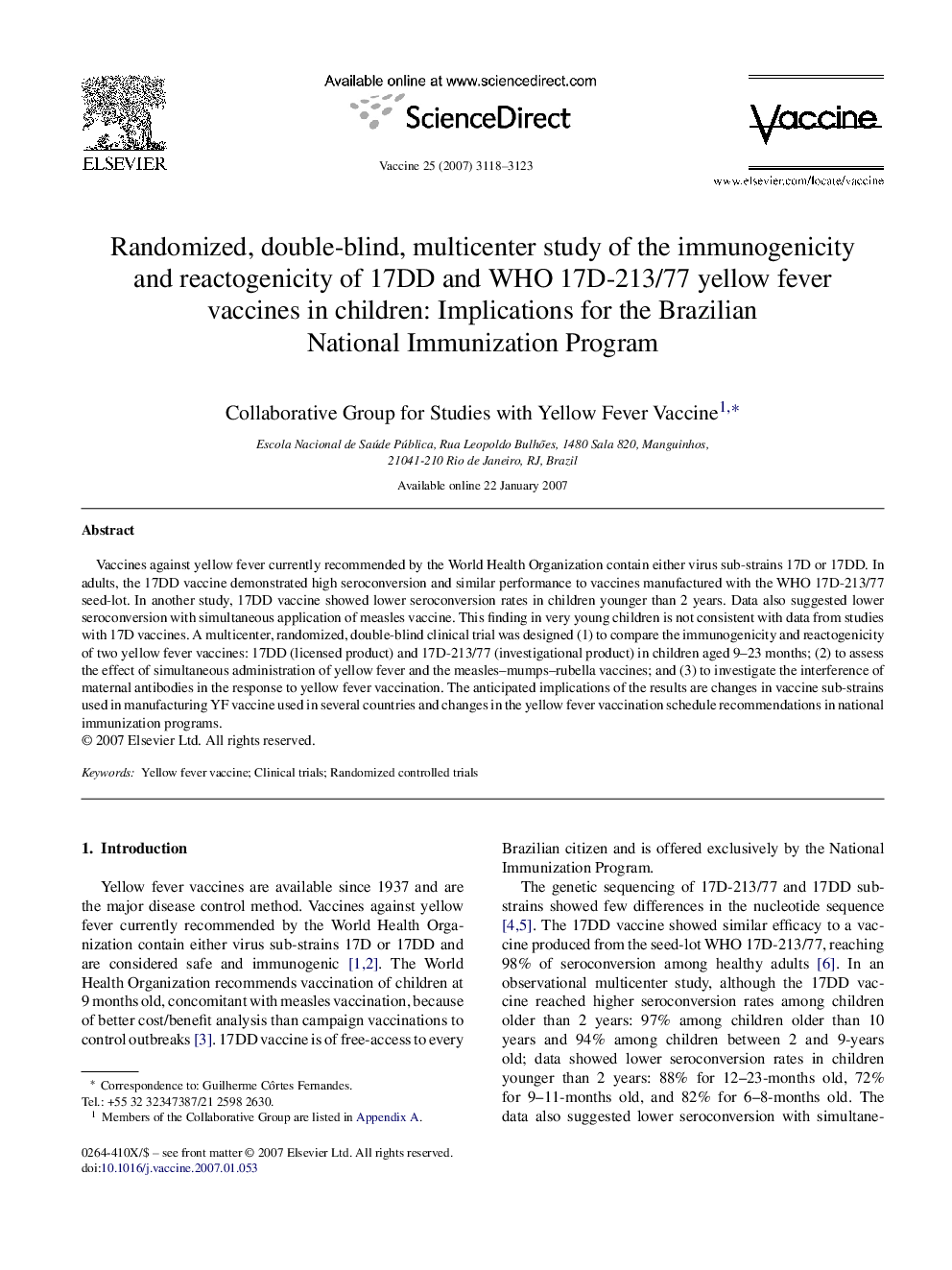| Article ID | Journal | Published Year | Pages | File Type |
|---|---|---|---|---|
| 2408329 | Vaccine | 2007 | 6 Pages |
Vaccines against yellow fever currently recommended by the World Health Organization contain either virus sub-strains 17D or 17DD. In adults, the 17DD vaccine demonstrated high seroconversion and similar performance to vaccines manufactured with the WHO 17D-213/77 seed-lot. In another study, 17DD vaccine showed lower seroconversion rates in children younger than 2 years. Data also suggested lower seroconversion with simultaneous application of measles vaccine. This finding in very young children is not consistent with data from studies with 17D vaccines. A multicenter, randomized, double-blind clinical trial was designed (1) to compare the immunogenicity and reactogenicity of two yellow fever vaccines: 17DD (licensed product) and 17D-213/77 (investigational product) in children aged 9–23 months; (2) to assess the effect of simultaneous administration of yellow fever and the measles–mumps–rubella vaccines; and (3) to investigate the interference of maternal antibodies in the response to yellow fever vaccination. The anticipated implications of the results are changes in vaccine sub-strains used in manufacturing YF vaccine used in several countries and changes in the yellow fever vaccination schedule recommendations in national immunization programs.
